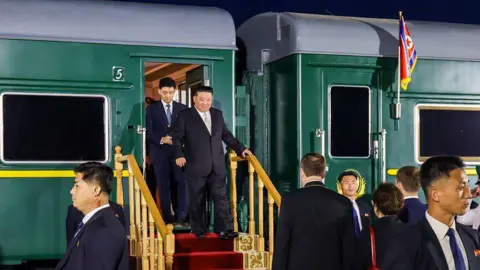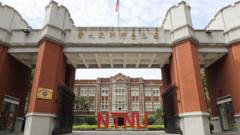In a groundbreaking voting event labeled as the "Great Recall," early results from Taiwan have shown that all Kuomintang (KMT) lawmakers targeted to be ousted due to allegations of excessive closeness to China successfully maintained their positions. The recall vote, beautifully encapsulating the current political climate, witnessed citizens from 24 districts head to the polls with a simple yes or no question about the ousting of their respective legislator. The strong turnout and fervent campaigning led to the opposition securing a continued slim majority in the legislature.
This recall endeavor originated from the civic movement inspired by growing concerns over the political actions of the KMT, especially their cooperation with the smaller Taiwan People's Party and independents to block policies set forth by the ruling Democratic Progressive Party (DPP). In May 2024, public sentiment shifted, leading to large protests termed the Bluebird movement, fueled by suspicions that KMT lawmakers were secretly advocating for Beijing’s interests within the Taiwanese Assembly. Subsequent petitions for recall votes began to gather momentum, ultimately culminating in the votes for 31 lawmakers from the KMT.
The stakes were particularly high for this recall, with many analysts warning that failure could exacerbate political polarization within Taiwan. The DPP, although initially aiming to disassociate from the recall campaign, shifted its narrative to support the movement as it became clear that voter mobilization was crucial for success. Critics accused the DPP of attempting to manipulate the recall process to regain legislative control.
As Taiwan stands at this contentious crossroads, the discourse surrounding the recall will undoubtedly continue to influence the political landscape, with implications for future elections and the overarching relationship with China. The Kuomintang's denials of succumbing to Beijing's influence resonate amid accusations, while mainland Chinese authorities keep a watchful eye, criticizing Taiwan's governance claims. The next chapter in Taiwan's democratic journey awaits with a new recall vote scheduled for August, keeping the political drama alive and the stakes high.
This recall endeavor originated from the civic movement inspired by growing concerns over the political actions of the KMT, especially their cooperation with the smaller Taiwan People's Party and independents to block policies set forth by the ruling Democratic Progressive Party (DPP). In May 2024, public sentiment shifted, leading to large protests termed the Bluebird movement, fueled by suspicions that KMT lawmakers were secretly advocating for Beijing’s interests within the Taiwanese Assembly. Subsequent petitions for recall votes began to gather momentum, ultimately culminating in the votes for 31 lawmakers from the KMT.
The stakes were particularly high for this recall, with many analysts warning that failure could exacerbate political polarization within Taiwan. The DPP, although initially aiming to disassociate from the recall campaign, shifted its narrative to support the movement as it became clear that voter mobilization was crucial for success. Critics accused the DPP of attempting to manipulate the recall process to regain legislative control.
As Taiwan stands at this contentious crossroads, the discourse surrounding the recall will undoubtedly continue to influence the political landscape, with implications for future elections and the overarching relationship with China. The Kuomintang's denials of succumbing to Beijing's influence resonate amid accusations, while mainland Chinese authorities keep a watchful eye, criticizing Taiwan's governance claims. The next chapter in Taiwan's democratic journey awaits with a new recall vote scheduled for August, keeping the political drama alive and the stakes high.


















